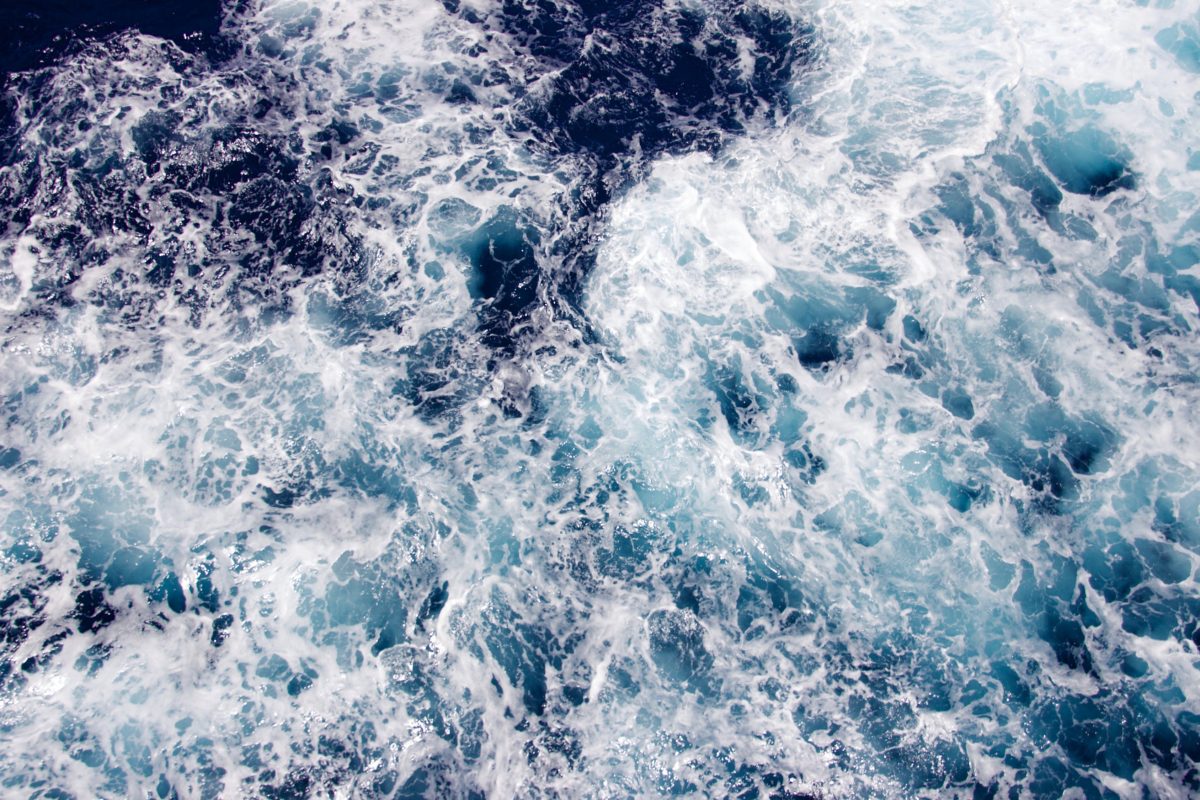The Cool Climate™ Clean Solutions Index gives exposure to companies furthering smart paths forward on the climate – as well as clean thinking ever more broadly. Greener actions for decarbonization, pollution prevention, healthier ecosystems worldwide, and preservation of biodiversity.
It’s about solutions that make ecological and economic sense.
Specifically this Index captures and tracks public companies that can help better protect our global commons: the world’s oceans, air, and land. It includes innovative means to reduce carbon and other greenhouse gases, such as methane, causing global heating. This Index naturally helps bring together deeply interconnected-themes.
Global oceans for example are a climate linchpin; they can help store carbon – or on warming plus acidification may be a source of greenhouse gases: hence healthy oceans – along with decarbonization are core. Equally central are wider means to achieve cleaner air, water & lands, prevent pollution in the first place, better efficiency, greener transportation, renewables, concepts like plant-based foods, green hydrogen, electrification of all, and more.
Encompassing action on climate crisis, as well as on green thinking, OCEAN bridges a gap between sustainability aims – and the need for diverse, applied clean solutions. It’s transparent, science-driven, naturally reflects Environmental, Social & Governance (ESG) concerns, and is intended to be understandable and of use to everyone. This newest WilderHill Index, OCEAN is a global Benchmark for ESG, and for climate action.
This instrument (symbol: OCEAN) calculates live on stock markets, exchanges, and bourses globally. It’s been wisely observed that “you cannot protect the oceans, without solving climate change – and you cannot solve climate change without protecting the oceans.” Hence this apt Index symbol attentive to oceans & climate, OCEAN.
Components and Weights are calculated live by award-winning Solactive AG and are Transparent.
Backtests show theoretical movements from 2016 to live launch Nov. 18, 2019.
OCEAN and an independent Tracker can help bring attention to new decarbonization pathways, and to green solutions more broadly. To opportunities that could potentially improve ecosystems health, reduce pollution, expand clean energy, and further bold action. Given disruptive climate crisis risks, new attention here is arguably warranted and merits our most serious attention.
Sectors include:
- Clean Energy,
- Greener Transport,
- Pollution Prevention.
- Sustainable Foods,
- Water.
Thus 5 discrete Sectors in OCEAN are: Clean Energy (CE); Greener Transport (GT); Pollution Prevention (PP); Sustainable Foods (SF); and Water (WT).

How it Works
Climate crisis and rapid change, global heating, polluted seas, land & air, ocean acidification, overfishing, habitat destruction, massive losses of biodiversity and ecosystems services, extinctions, sea-level rise, etc: each poses urgent challenges for our environment. This OCEAN basket captures diverse responses to these myriad yet deeply-linked issues within a single global Index basket.
Because attention to planet & climate, oceans, land, air, and to clean thinking more broadly are recent themes – this Index may help add diversification to model portfolios of many kinds.
This next-generation WilderHill® Cool Climate Clean Solutions Index is based on positive-screening. Its Cool Climate™ approach is based on companies having significant nexus to a healthy environment. Many components may thus be relatively easily included here, like those prioritizing sustainability, or say zero-carbon clean energy, or plant-based meat substitutes – or that can significantly help prevent pollution of the seas, air or land in the first place.
Other inclusions came after deliberations, where sustainability is developing – yet more needs to be done. Best-in-class efforts may be recognized such as improving fish farming, or greening transportation, or agricultural practices, or water conservation and treatment. Because making progress can be significant to this theme, advances to better sustainability may be included.
Take aquaculture: a major protein source today. As attention to sustainability grows, a step forward is to combine ESG factors with Sustainable Development Goals. This gives ratings on greenhouse gas emissions (GHGs), deforestation & biodiversity loss, water use & scarcity, waste & water pollution, antibiotics, working conditions, animal welfare, food safety. And maybe towards plant-based sea/foods ahead.
Analyzing aquaculture, a Coller FAIRR Report has shown where positive change is happening. In aquaculture, best in class producers preventing pollution can be considered. For example sizable greenhouse gas emissions in salmon farming come from fish feed: hence feed is ripe for emission-reductions. Relevant too for marine ecosystems is the nature of fish feed. Obtaining Certifications across aquaculture operations can also be a metric for progress. There’s wide spectrum of performance on disease management and green practices, with some producers scoring relatively much more highly, than others. Relatively the best-performers with higher ESG and related scores may be sought here for consideration.
Diverse Industries have just begun to consider climate & ESG challenges – with diverse results. Yet the data show much can be done to decarbonize now. For instance Clean energy low CO2 solutions are seeing early progress and results. That contrasts with water conservation – in its early stages, and much improvement is likely ahead. Pollution prevention may be on cusp of better, brighter, blue & green horizon; more ecologically sensible answers beckon in diverse settings.
This Cool Climate™ and Clean Solutions (OCEAN) is exclusively created and owned by Progressive Energy Index LLC, part of WilderHill® Indexes. It is calculated by Solactive (“Calculation Agent”), which has outsourced entirely all determinations of the Index Universe to the Owner & Selection Party. This and other WilderHill Indexes are now benchmarks. OCEAN may be licensed to third parties, for potential tracker to mirror the performance of our Index. Progressive Index LLC is an independent company.
OCEAN Guidelines
To be eligible for potential Index inclusion, each component must have:
- a primary listing in one of the countries that are part of the Developed Markets as defined by the Solactive Country Classification, plus South Korea, Taiwan or Chile;
- a Total Market Capitalization of at least USD 150 million; and
- a minimum average daily trading value – of USD 500k over prior 30 days. (Effective 12/2021).
The initial composition of the Index as well as any selection for an ordinary rebalance is determined on the Selection Day in accordance with the following rules:
For a company to be reviewed for consideration for inclusion in the Index, it must pass a screen by achieving an internal score of 3 or better out of 5 for climate, clean solutions, and sustainability. The scores are assigned based on internal reviews, perhaps with the Advisory Committee of experts in marine science and related fields.
The scores are qualitative emphasizing impacts for climate, environment, biodiversity, preventing pollution, or lowering greenhouse gases. Sustainability & environment are emphasized. In determining the scores, there is a strong bias in favor of purer-play companies focused on products, goods, services for
- climate stability and decarbonization;
- healthy oceans, global ecosystems, biodiversity;
- renewable energy;
- sustainability, and eco-thinking;
- clean water, air, land;
- greener transport;
- better efficiency, circular economy;
- pollution prevention, greener alternatives widely such as agricultural, or non-meat substitutes;
- climate change solutions broadly, advancing once-cooler climate.
Companies in emerging related fields ahead may be considered with respect to advancing or reflecting climate stability, or clean solutions ever more broadly. An emphasis is on companies providing sustainable solutions, with particular focus on decarbonization, reduction of greenhouse gases, and clean eco-thinking more broadly. This includes for example, companies reflecting low-carbon renewable energy, and prevention of pollution in the first place.
In addition, external ESG scores of B- (or equivalent) or better for E (Environmental) criteria are generally required to be held by at least 90% of those companies reviewed for consideration for inclusion in the OCEAN Index that do have an ESG score. Scores for the ESG filter process are derived from recognized ESG data providers.
Owing to the fact attention to decarbonizing, and green action is in early stages, and sustainability an emerging theme, smaller-cap and mid-sized companies may have a leading role in Index composition. High volatility is expected. Sustainability is ‘baked in’ here. So too is an attention to the “E” within environment in Environmental, Social, and Governance (ESG) considerations, as well as to climate, and impact investing.
On each Selection Day, each Index Component is assigned equal weight.

Philosophy Behind the Index Theme
The Precautionary principle which aims to avoid harm in the first place, like a good Physician is noted. Philosophically, we emphasize innovative solutions making both ecological and economic sense.
Visit the website of the Calculation Agent, Solactive, for the specifications, history, developed countries/exchanges list, and other information for live calculations of this WilderHill Index.
We subscribe to modern portfolio theory and believe that advantages of a passive transparent indexing approach are persuasive. We pursue qualitative, analysis-based stock selection according to ecological and technical considerations. Notably we don’t change composition more often than Index rebalancings. We don’t try to ‘beat the market’, nor try to pick perhaps ‘under-valued’ stocks. Guidelines for Index are here.
We do not take defensive positions within the Index when markets decline, appear over-valued, or the Index is experiencing unusual volatility. Rather than try to select Index components based on futuristic predictions or potential financial or market data, we robustly look at climate, clean solutions and biodiversity broadly conceived, and review stocks and sectors on their ecological, environmental and technical criteria. We judge our performance by how well the Index tracks the movements of the still-emerging low-carbon climate & clean solutions broadly sector – downwards and upwards – and anticipate significant ongoing volatility and risks in this new sector.
We apply qualitative analysis to determine Index components, which are equal-weighted at the rebalances for start of each Quarter. Criteria include importance of the stock to ever-lower carbon & greenhouse gases, for healthy oceans, land, air, the relevance to climate solutions, pollution prevention, technological significance, intellectual property rights, salience to preserving biodiversity, ecosystems structure, function, integrity, and other non-financial criteria. The Index may be a diversification tool. Given inherent volatility, many small companies and strong changes both down or up, this WilderHill Index is expected to be notably very volatile as well.
Companies in emerging related fields may be considered with respect to impact on the climate crisis, biodiversity, carbon or greenhouse gases impact, and degree to which they advance or reflect healthy oceans, land, clean air. Non-public companies cannot be included in the Index – but we look forward to future emerging public companies in areas ahead such as vegan / plant proteins, biodegradable alternatives to plastics, alternate foods & processes with much lower-carbon footprint, and potentially robust, permament, genuine, safe sequestration or elimination of greenhouse gases.

Innovators in Environmental Investment Themes
Now a well-known benchmark, the original WilderHill Clean Energy Index® (ECO) founded in 2004 is an antecedent and derives in part from attention to climate, ocean health and the environment. Notably it was the first-ever for climate change solutions. More on the longstanding ECO Index® can be found at www.wildershares.com.
We were again pathmakers in 2006 launching the first Global clean energy Index, the WilderHill New Energy Global Innovation Index (NEX). It continues to focus live on zero-carbon energy innovations and new climate solutions worldwide.
Two other of our Indexes, were also ahead of their time, Progressive Index (WHPRO) for reducing carbon and greenhouse gas in dominant fossil fuels & for decarbonizing: it had calculated live from 2006-2019. Also our Wilder Nasdaq Global Energy Efficient Transport Index (HAUL) for improving efficiency, sustainability, and lowering carbon emissions; it had calculated live worldwide from 2008-2012.
Hence OCEAN is a natural progression, culmination of themes. Drawing on aspects of ECO, NEX, WHPRO & HAUL – today’s OCEAN basket for decarbonizing emphasizes climate, clean solutions, sustainability, reflects ESG thinking, and is global in scope. Over the many years since, these WilderHill Indexes (and their independent tracker funds) have arguably helped to catalyze dozens if not hundreds of competing products all focusing on clean, green themes. Today’s latest theme of ‘Cool Climate Clean Solutions’ seen in OCEAN, may arguably help again generate welcome interest ahead.
